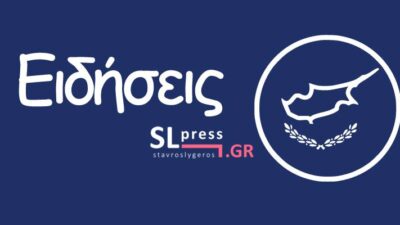Alexandros Tarkas: “European Strategic Autonomy”, Rehabilitation Fund and Immigration – The Triple Negotiation
25/06/2020
Germany’s assumption of the EU presidency on July 1st is likely to lead to the first decisions on the Recovery Fund at an emergency summit later this month. The partners’ disputes and the chaos in the Brussels bureaucracy, however, are already burdening the negotiating framework for 32 billion euros in funds to Greece.
Berlin has informed Athens that in the second half of 2020 it will promote the “European Strategic Sovereignty” program (as a counterweight to the US) and will move quickly so that the initial adjustments of the Recovery Fund and the Multiannual Financial Framework are approved by the end of July. On the contrary, the German immigration agenda does not include decisions on immigration before December, while the prevailing assessment in Brussels is that the issue will be postponed to the first half of 2021!
The Greek government has not yet commented on the “European Strategic Autonomy” and expressed satisfaction with the willingness to speed up decisions on the Recovery Fund and related economic issues. At the same time, the government remains silent on immigration, saying it has high hopes for a co-ordination between Athens and Berlin expressed last August in talks between Chancellor Merkel and PM Mitsotakis and in October during the visit by German Interior Minister Zeerhofer.
According to sources in Brussels, despite the impossibility of reaching an initial compromise in the European Council last Friday, member states’ governments are expected to be notified by the end of the month of the final negotiation framework on the Recovery Fund and the Multiannual Financial Framework. One positive aspect concerning Greek interests is that French President Emmanuel Macron and Chancellor Angela Merkel insist on quick decisions and the ratio of large grants to small loans.
The four “hardliners” who became six
However, all other, related developments seem negative for Greece. In the discussions of the European Council and in its preparatory meetings (at ECOFIN and at the level of Permanent Representatives), it was found that the four “hardliners” who insist on a policy of loans and memoranda rather than subsidies (Austria, Denmark, the Netherlands, and Sweden) gained support from Estonia and Finland.
The six countries now insist on borrowing and limiting such loans exclusively to the extent of covering proven Covid-19 losses without interfering with other fiscal and financial problems. At the same time, they demand a short duration of the Rehabilitation Fund (until 2022, instead of the 2024 that benefits Athens), warning that they will strictly examine the Commission’s assessments and national plans for damages and needs.
It is also worrying that Belgium, Luxembourg, Slovakia and Slovenia are inclined to adopt several views expressed by the “hardliners”, while until recently they approved the Commission’s proposals and the general directions of France and Germany. It is too early to assess whether this is a temporary negotiating tactic to secure trade – offs in other areas, or whether they will move permanently to the opposing camp.
Berlin for the Rehabilitation Fund
The same sources in Brussels add that, although of course the German policy on the Rehabilitation Fund is in principle positive for the Greek economy, the individual details hide surprises. Berlin has reportedly not decided on the duration of the disbursements (2022 or 2024). It is in favor of the immediate start of repayment installments and does not clarify its position on the criteria for assessing the losses of the economy of each Member State.
Given this information, Prime Minister Kyriakos Mitsotakis is biding his time. The government’s priority is to submit the national recovery plan to the Commission by the end of October and not to run out of time, beyond deadlines, as other partners may do, such as Italy and Spain, which have the certainty of being treated positively as the most affected by the pandemic. Apart from the crucial aspect of the operation of the Rehabilitation Fund, the main Greek goal is to avoid loans and to use only subsidies.
However, unlike the over-optimism that is being cultivated, things are not rosy concerning grants, because the size of the population, GDP and unemployment will be assessed cumulatively. Theoretically, the co-assessment (ratio of small population and high unemployment) predisposes in favor of Greek demands, but in practice it has not been clarified whether only the 2011 census or other data (additional immigrants) will be taken into account, as well as recorded or actual unemployment.





